Table of Contents
The mistresses of frizzy, curly hair have always dreamed of straight hair, and the owners of straight hair were jealous of the first. Curly hair has many features that are not familiar to people with straight hair. For example, there are fewer curly hairs on the head. Approximately 100 thousand hair follicles versus 120 thousand hair follicles from which straight hair grows. Outwardly, this is invisible because curly hair takes up more space.
Curly hair is naturally scaly and porous and prone to dryness and breakage. High air humidity becomes a serious problem for many, in which hair behaves unpredictably and often turns styling into something unexpected.
Curly hair is more fragile than straight hair. They have an uneven hair shaft and a raised cuticle, which makes them more vulnerable to damage. The more curly your hair, the more protection it needs.
Curly hair is less protected. Curly-haired people have fewer not only hair follicles but also sebaceous glands. They secrete sebum, which naturally nourishes and protects hair. The less it is, the more dry and brittle the hair becomes.
There are many hair styling techniques, most of which are quick to do. But to make an impression, you need to choose care and solution for frizzy hair.
Care and solution for frizzy hair
Curly hair is more susceptible to damage; therefore, you will be expected to be more involved in caring for your lush hair.
- After shampoo, you need to apply a small amount of rinse to the entire tail and then distribute evenly over the strands without touching the roots. Take a small part and comb it with your fingers or a comb with sparse teeth, constantly wetting it with water. And this is the only time when you can use the comb. If you comb dry curls, then nothing but fluffiness will work. Frizzy, curly hair cannot do without constant hydration. Due to the lack of moisture, the curls will take on a stunted and lifeless look. You need to use moisturizing sprays or hair conditioners. Any cosmetic store will help you find the right product. A moisturizer is required every time you wash your hair. It should be spread over all hair. Wait 10-15 minutes, and only after this, proceed to comb.
- Dry your hair properly. A hairdryer will help you with this. Thanks to the smooth flow of air, your hair will retain its shape and elasticity. It is not necessary to dry frizzy, curly hair completely, letting them dry out on its own. And if time permits, then it is better not to use a hairdryer at all but to wait for natural drying. By the way, from this moment, you can start shaping a hairstyle on your hair. While hair is drying, hand squeeze damp hair for 15 minutes. Apply the towel alternately to different areas of your head and give them the freedom to dry completely.
- Much depends on correct combing. Surely everyone already knows that it is forbidden to comb hair immediately after washing. This can damage and ruin the structure of your hair. It is permissible to comb a short haircut from above, from the scalp itself, but you still need to start combing it from the bottom with a long one. The most optimal material for comb is wood, although you can also use brushes with natural bristles. The right comb is a vital care solution for frizzy hair.
Why does hair frizz in the rain?

The most painful problem of all frizzy, curly hair. Curly hair lacks moisture. Straight hair is like a straight road - the path along it is shorter and faster. And along the winding path, you have to go slowly, and if there are a lot of turns, you can get tired at all and not get there. It's the same with hair and natural sebum. It is easily distributed along with straight hair and wanders along with curly hair like a mountain serpentine. Therefore, in the rain, wavy hair rises up, trying to capture moisture from the air. Fluffing up at the same time to the state of a poodle. For the same reason (due to lack of moisture), curly hair often splits. Therefore, the main solution in the care of frizzy hair is to moisturize and retain moisture with all its might.
Styling frizzy, curly hair
- If you are caught in inclement, wet weather, don't even try to curb your hair. All your efforts will be unsuccessful.
- Watch the ends of your hair. Curly hair, like no others, is prone to segmenting. But you can prevent split ends by using curl conditioners and styling products that are formulated with silicone.
- Use a hairdryer competently. It is necessary to dry it on the mode with the lowest heating, moving from the scalp to the very bottom of the strands.
- If there is practically no room for styling, take an accessory such as a bandana strip or headband. These, in general, commonplace devices will call your curls to order and give your hairstyle a personality.
- A simple comb can turn into the main companion for your frizzy, curly hair.
How to choose shampoo and solution for frizzy hair?

Not everything written on for curly hair suits them. Curly hair needs a shampoo that is soft and without sulfates. But in cleansing, you need to start not from the condition of the hair but the type of scalp. Even if the hair is very dry, but the roots quickly become oily, you need to select a shampoo with a high cleansing ability. Wash your hair as it gets dirty, even every day. The skin should be clean, and balms and masks will save from overdrying the hair. By the way, you can ignore the “nutritional” properties of shampoos. The remedy is on the head for less than a minute, and all the useful components simply do not have time to act.
Sulfate-free shampoo is, of course, softer and better. SLS and SLES are the most common, and in general, there is nothing forbidden in them. They are just aggressive, and everything aggressive destroys the natural curl. This also includes AOS (alpha-olefin sulfonate) and sodium coco sulfate, which is the raw material for SLS and softer.
90% of the solution for frizzy hair contains silicons, but curly girls should pay attention to the remaining 10%. Silicone makes the hair heavier and prevents the curling of what is given by nature. In addition, they are not washed off with a mild shampoo and accumulate on themselves (dimethicone and amodimethicone). As a result, the hair clogged with silicons does not find the strength to curl harmoniously; they only have to stick out.
Shampoos with sulfates are harmful to curly hair, but if you decide to change your hair care and switch to a conditioner without silicons, first wash your hair with sulfate shampoo along the entire length. And it makes no sense to use sulfate-free shampoo and care products with silicons at the same time.
Styling with hands, gel, and water
Experienced owners of frizzy, curly hair advise taking care of them already at the stage of soaking with a towel. Ideally, this should be a silk turban. But a microfiber towel or any smooth, lint-free fabric, even a regular T-shirt, will do. Hair clings to the pile of terry towels, and the prerequisites for fluffiness appear already at this moment. Therefore, it is enough to wrap the bundle in a thin towel for 15 minutes and allow excess water to be absorbed.
Curly hair needs indelible care, and future curls are just formed in the process of applying it. Apply to the strands and smooth everything that sticks out; otherwise, it will stick out even more when dried. Then all the hair is again wrinkled from the bottom up, helping them to take the shape of curls. You can do this until you get bored. The longer you knead, the more expressive your curls will be. But when the process becomes regular, the hair will get used and begin to take shape faster.
Dry naturally or with a hairdryer with a diffuser. The hairdryer is not as scary as it is commonly believed. It is enough to follow two rules:
- Before drying, treat hair with gel diluted with water. It performs the function of fixation and creates a thin film that retains moisture inside. Therefore, drying hair without gel is more dangerous than with it. Apply also with creasing movements from bottom to top and slightly to the sides, but do not stretch.
- The airflow should not be hot or cold but comfortable for the scalp. Hot to the skin, hot to the hair. Therefore, the damage from a hot iron cannot be compared with a hairdryer there, and the gel shell will not save. When the gel dries, a hard shell forms on the hair. Shake the hair at the roots from the bottom up.
You need to minimize friction and do not comb until the next wash to maintain your curls the next day. And so that your hair calmly survives the night and does not go unkempt, sleep on silk pillowcases. Or tie it with a silk scarf. But a pillow with silk not only protects hair and gives a bohemian feeling but also leaves no creases.

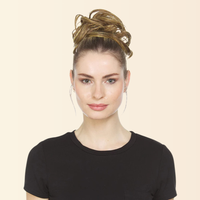
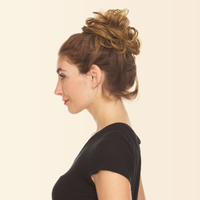
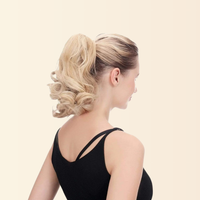
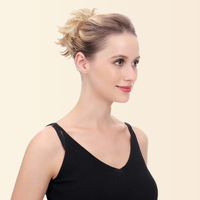


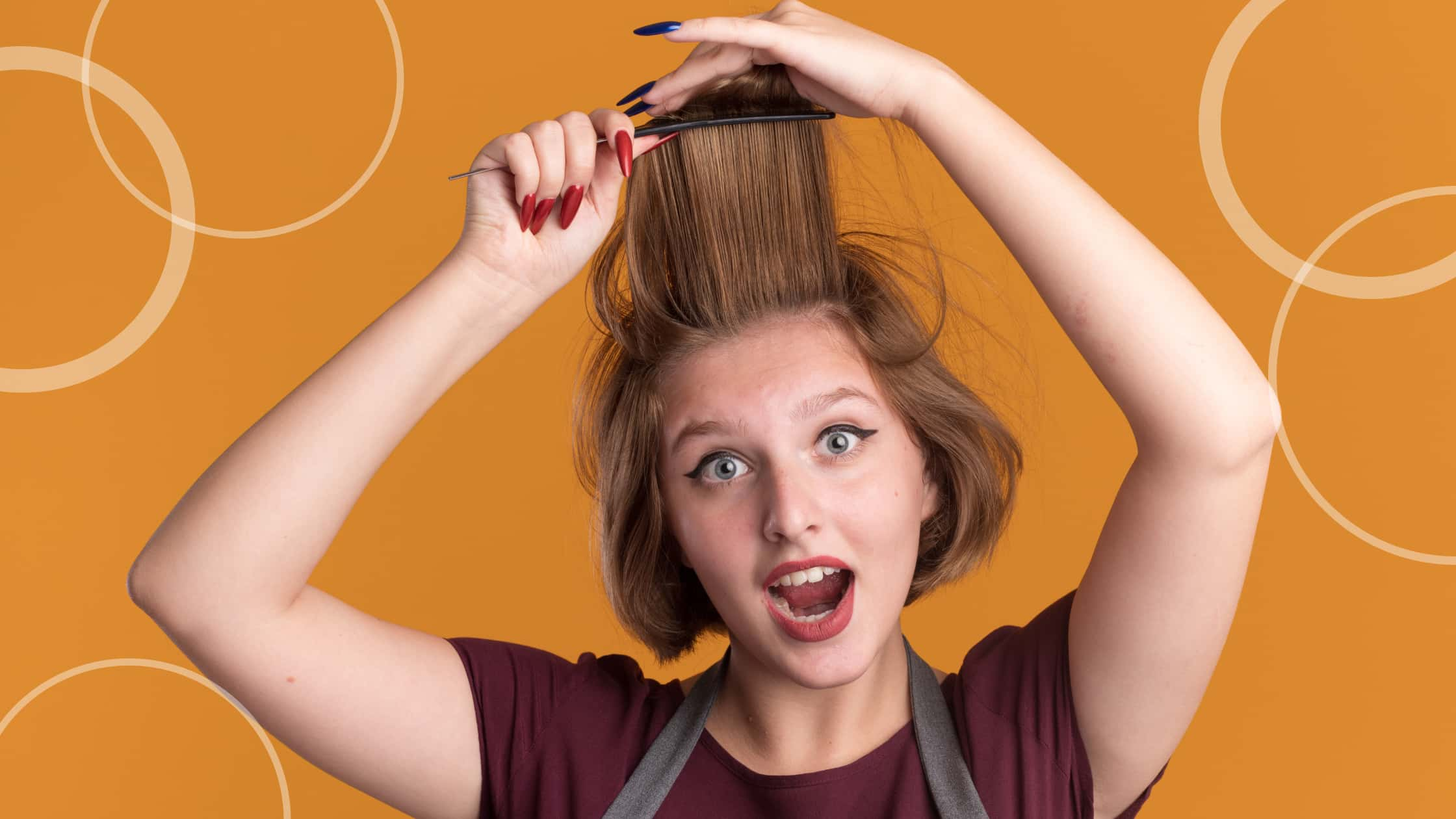
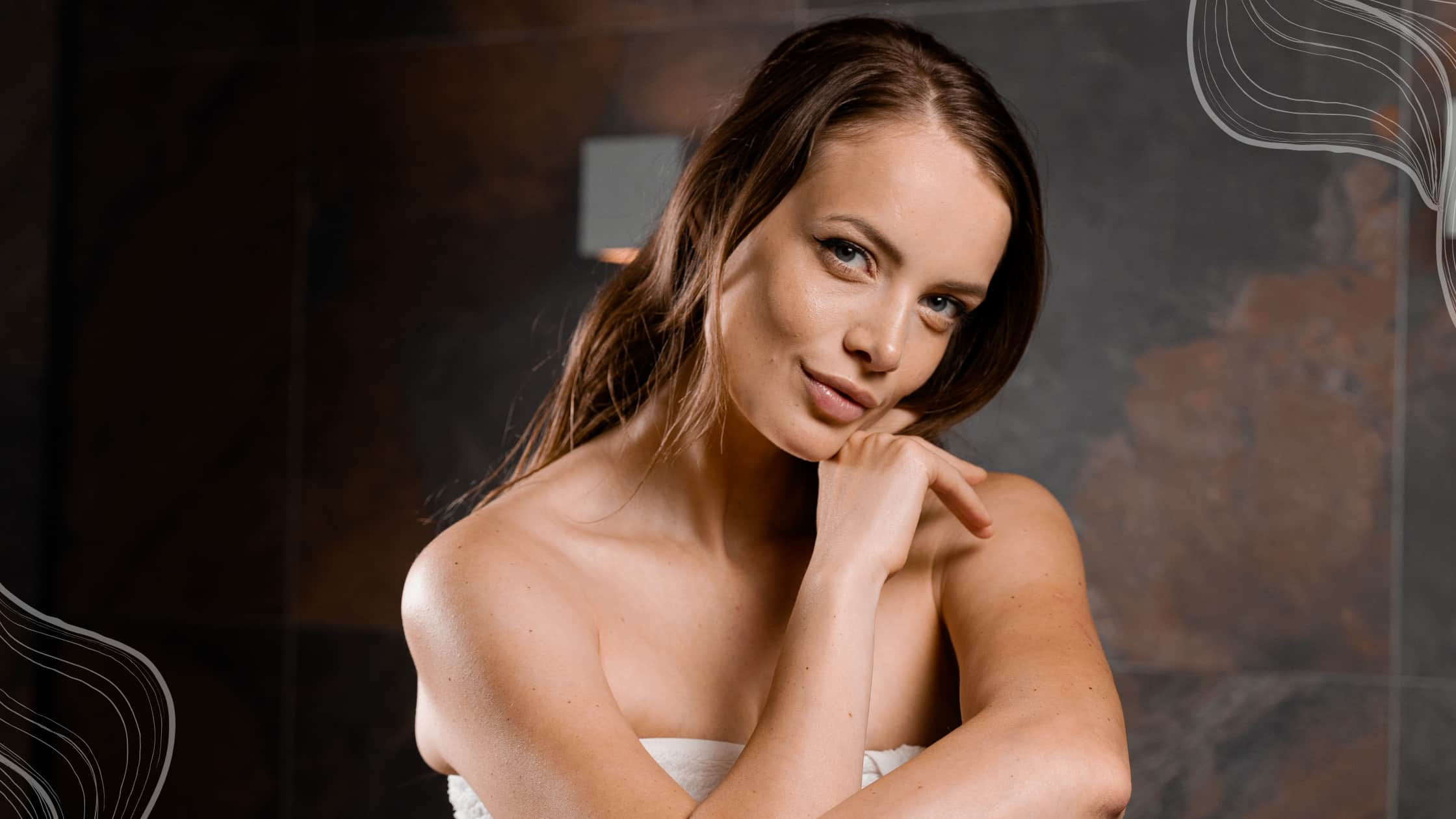
Leave a comment
This site is protected by hCaptcha and the hCaptcha Privacy Policy and Terms of Service apply.